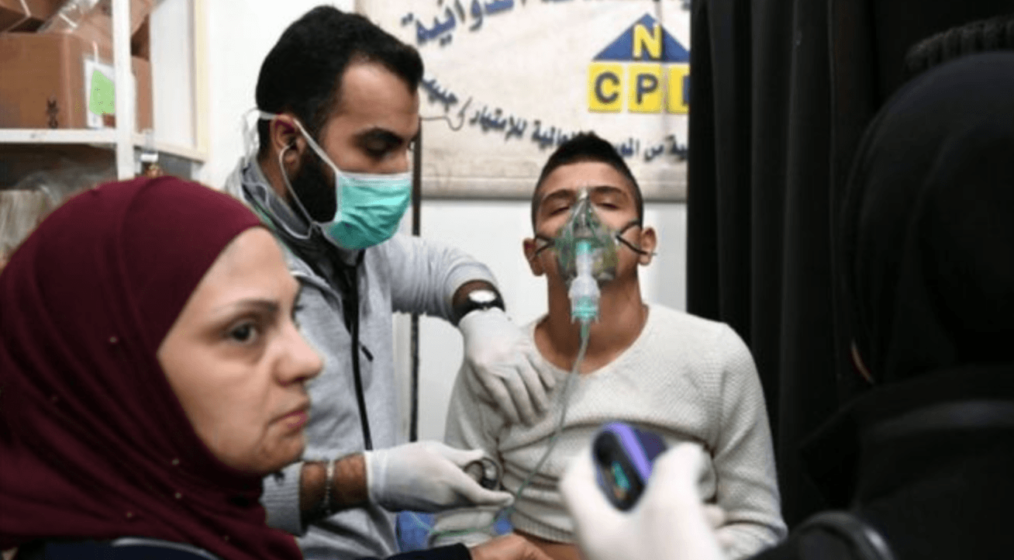
When Will the Bloodshed in Syria End?
Late last year, most of the world let out a sigh of relief as it began to appear as though the almost decade-long, brutal Syrian civil war had ended. Bashar al-Assad’s men erected their flag in the town of Daraa. Although more violence did ensue, it was obvious what the flag represented. Daraa was the town where the uprising on March 6, 2011, first began. The flag was a statement.
Syria had essentially won the war after receiving considerable support from Russia. The rebels and their allies had lost. The United States had prioritized the fight against the Islamic State and did not pay too much heed, except for words of consolation and a small amount of funding for refugees and the retraining of “well-vetted” rebels. As they entered the fray in the summer of 2017, the war was winding down and the Islamic State’s “caliphate” was hanging loosely by a thread.
After reports of chemical warfare, the U.S., along with other western nations, executed airstrikes targeting facilities in which chemical weaponry was thought to be manufactured. As the months dragged on, the Syrian government and its forces captured more and more of the last few areas held by rebels.
Finally, on October 15, 2018, Turkey, advocating on behalf of the rebels, and Russia, advocating on behalf of Assad’s regime, reached a ceasefire agreement in the Idlib region of Syria. This agreement was fabricated to establish Idlib as a buffer zone and essentially de-escalate any further perceived violence by the Syrian forces, focusing on the last of the remaining rebel forces.
As of November 26, 2018, this agreement is now being threatened given that Russia has accused the rebels of launching chemical attacks on the city of Aleppo, injuring at least 100 people. Although the rebels refused to take responsibility for the attack, the accusations were nevertheless met with immediate airstrikes by Russian forces.
The ceasefire that had managed to stand for a few months is now in danger of collapse. The chemicals in question have not yet officially been verified, although the Syrian government has claimed they are chlorine-based gas attacks. However, this has not yet been confirmed and could just as well have been a less harmful gas such as tear gas. The Organization for the Prohibition of Chemical Weapons, a third-party watchdog, is set to investigate further to find out what exactly was used.
Opposition forces, including the rebel forces, claim that Assad’s regime is simply fabricating the accusations to give them an excuse to wipe out the last remaining rebels once and for all. Both sides have reason to avoid conflict. All parties should be routing for a peaceful conclusion in which the dispute can be solved, otherwise innocent blood will inevitably be spilled again. As in most conflicts, it is the people of the country who have suffered the most, and they will again pay the price if this cannot be solved non-violently.
If violence cannot be avoided, a new surge of refugees will flow from the violence, most likely to Turkey. This is one of Turkey’s key reasons for desiring to keep the buffer zone intact. Wars often produce fragile states, which in turn often provide hotbeds for extremism to operate, as we saw with the Islamic State not long ago.
The United States has yet to issue a statement on the incident but seeing as thwarting international terrorism is one of their chief goals in the Middle East, they should exert their influence to help mediate the conflict between Turkey and Russia. Finally, Russia wishes to show the international community that conflict in Syria has died down and that countries should look to aid in stabilizing the country once again by paying for reconstruction projects.
This will never happen if war breaks out again and more lives are lost. The rebels numbers are low, there is no hope of beating Russia and Assad’s forces if peace is not reached the country of Syria will continue to bleed.
